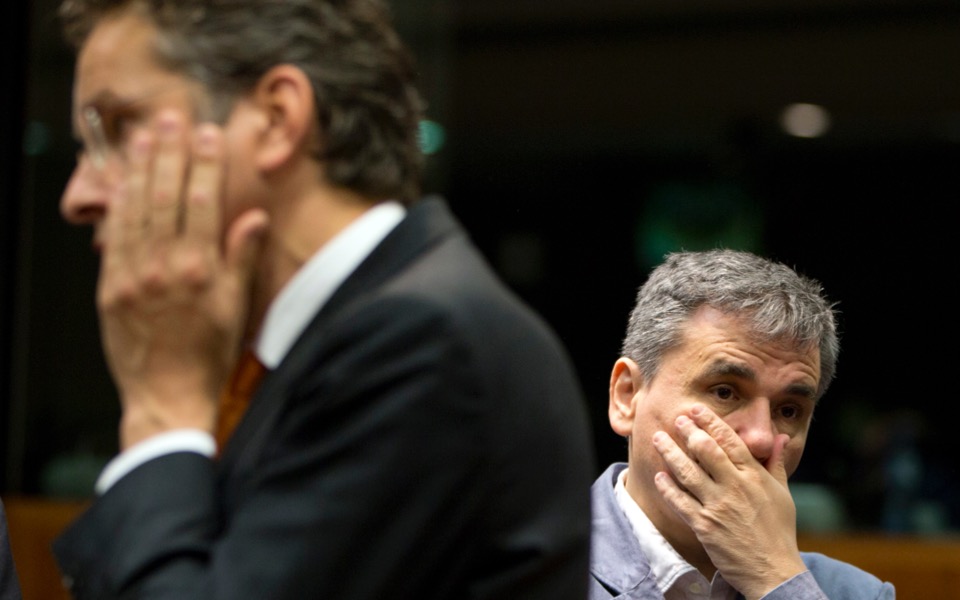A fourth program or a debt haircut for Greece

In November 2012, at the insistence of the IMF, the Eurogroup committed in fairly explicit terms to provide debt relief to ensure that Greece’s debt-to-GDP ratio would be substantially lower than 110 percent by 2022. In successive steps, these commitments were taken back and the metric to assess debt sustainability was changed. It was not until May 2016 that the IMF was able to bring back the topic, and finally armtwist the Eurogroup again into committing to new staged debt relief measures.
Yet, the IMF and the Eurogroup exacted new concessions from Greece in exchange for these new debt relief measures, including unrealistic fiscal targets and so-called structural measures to ensure “automatic” fiscal consolidation in the future. This change of heart on the part of the troika, and the negotiations surrounding it, has proven increasingly costly to the Greek economy, to the point where the quest for debt sustainability, so dear to the IMF, can be argued to have become self-defeating. From November 2012 to March 2017, debt to GDP has increased from 160 percent of GDP to 177 percent and GDP per capita has continued to decline.
A new, robust and independent debt sustainability analysis by the Peterson Institute suggests that, even with these new commitments, we must go back to the drawing board, because the measures sketched out by the Eurogroup in May 2016, if ever applied, are unlikely to achieve their objective under any realistic scenario of Greece’s fiscal path. As this becomes clearer, the current approach is to try and squeeze yet more fiscal adjustment or structural reforms out of Greece. But this spreadsheet brinksmanship is proving enormously costly to the Greek economy, which is at risk of another completely man-made recession in 2017. It has become urgent for Greece and its partners to think seriously about a framework that would end the current game of chicken and yet ensure debt sustainability.
One way to achieve this is essentially to extend the current commitment by the Eurogroup. But it will need to go further and be delivered quicker in order for Greece to return to growth rapidly and for concerns about euro exit and stability of deposits to be durably removed. These long-term debt relief commitments will inevitably increase the exposure of the European countries over time. In order to minimize both Europe’s exposure to Greece and Greece’s funding costs over the long term, Europe is likely to delay any return to markets and effectively push Greece into a fourth program, thereby extending conditionality further.
While politically unpalatable, this option might be better for Greece than agreeing to punitive and front-loaded measures now in order to secure very elusive debt relief, plus an inclusion in the European Central Bank's quantitative easing program (QE) that would be small at best and last only a few months. A fourth program might actually be preferable to crippling the economy in order to secure what will prove to be insufficient relief.
The second strategy relies on a complete change of approach. The debt sustainability numbers show that a framework allowing for nominal debt relief should not be dismissed. For one, contrary to what has been suggested, it is not illegal and does not represent a violation of the no bail out clause (Article 125) of the Lisbon Treaty. On the contrary, the ECJ Ruling in the Pringle case on the ESM clarified the legality of financial assistance and relief between member states. Furthermore, politically, it has the merit of making transfers that European citizens know exist more explicit and more transparent.
Second, the precedent created in 2012 by the repatriation of SMP profits to Greece illustrates that member states have already effectively voluntarily agreed to nominal relief (effectively a transfer), which would simply need to be scaled up. There is an international framework for such official nominal debt relief known as the Highly Indebted Poor Country Initiative (HIPC), which has a strong and proven record in delivering conditional debt relief to countries in need. This mechanism could easily be adapted to the European context. It could offer, in exchange for key reform milestones, the strongest signal that Greece’s debt will be reduced and that its place in the euro will never be questioned again, thereby removing the sword of Damocles that has weighed on the country’s political system and its economy for the past few years.
* Shahin Vallee is an economist in the City of London. He has previously served as an economic advisor to Emmanuel Macron and to European Council President Herman Van Rompuy.





